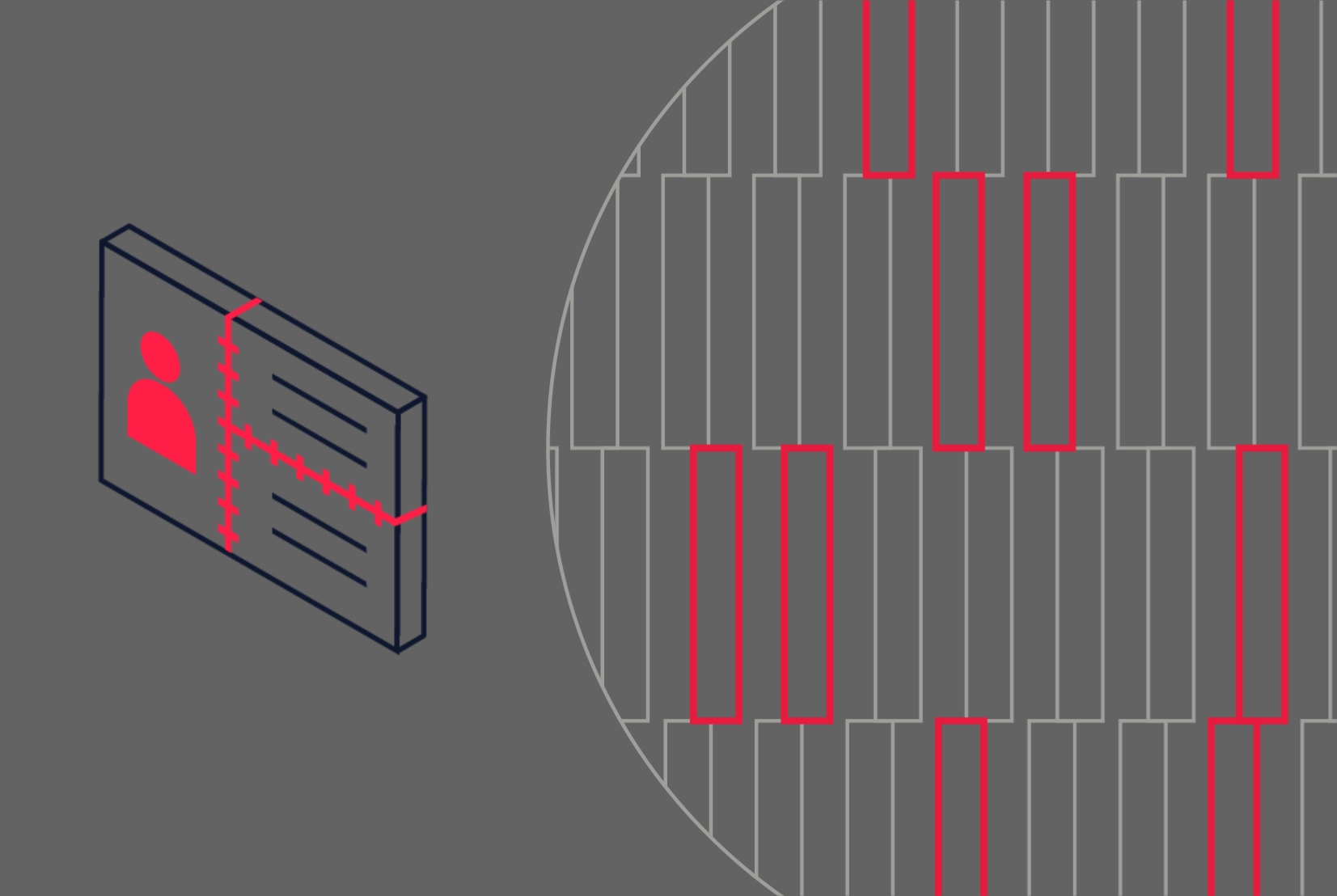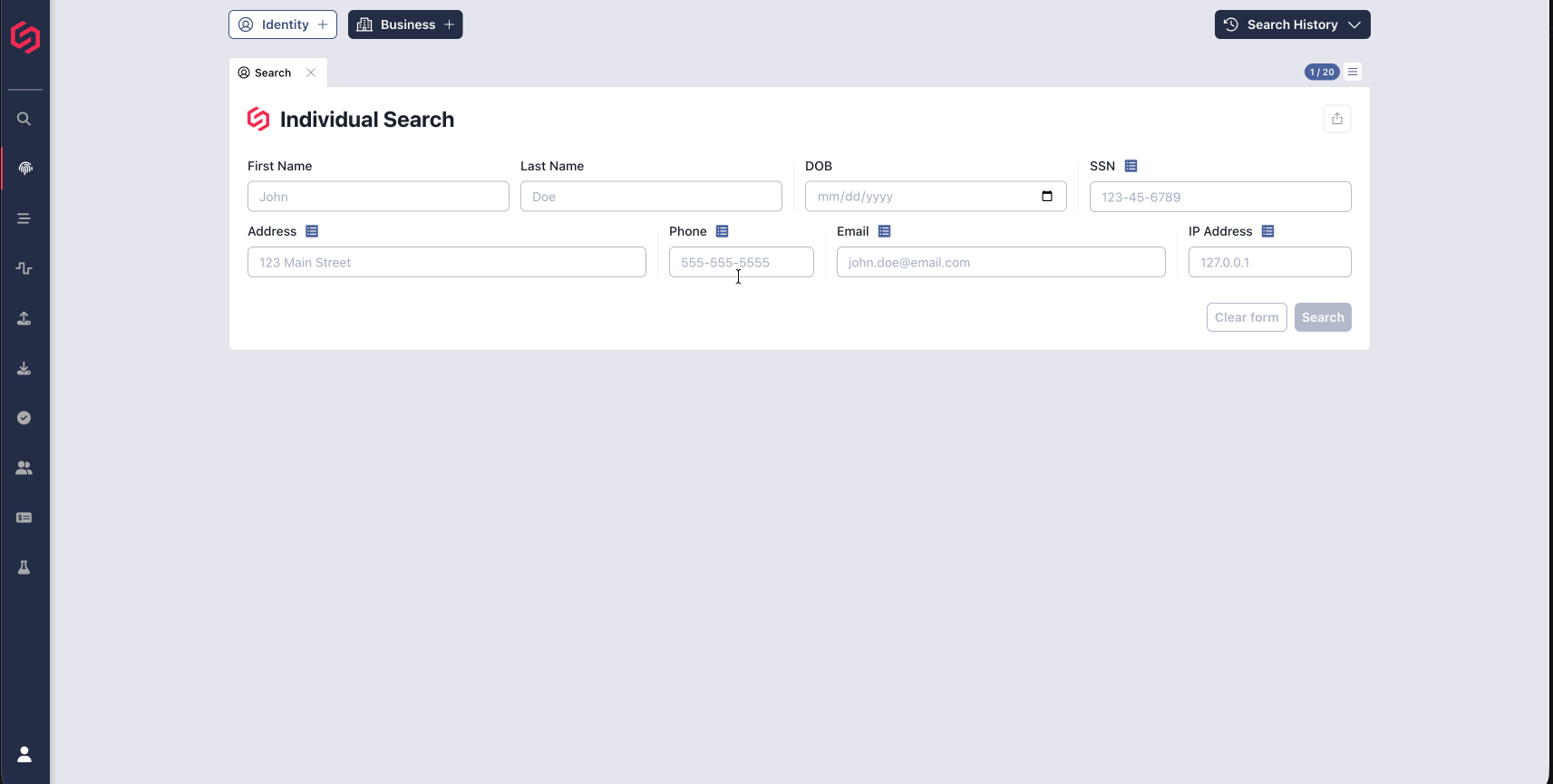Blog post
The Truth About CPNs in Property Management
Johnny Bravo
Published
December 10, 2024

There seems to be some confusion about Credit Privacy Numbers (CPNs) in the property management and rental housing space. And make no mistake: if you're a landlord, this confusion could be costing you a lot of money.
This misunderstanding about CPNs is not surprising – there is a litany of information available on the open web (social media, Google, etc) about how and when to use CPNs. They're often promoted to consumers as a legitimate way to “protect” their privacy or as a way to get past screening processes. We've even seen cases of property managers saying “It’s OK to use CPNs."
But the reality is that using a CPN, in place of an SSN, is a fraud tactic that's used to obscure an applicant's true credit history from the property manager assessing the application. With many CPNs originating as stolen SSNs.
The truth about CPNs
CPNs are nine-digit numbers that are used in place of a consumer's real SSN on rental applications, credit applications, and more. They're often presented as a legitimate way for consumers with poor credit or criminal history to pass credit, identity, and background checks. To be clear: CPNs are not legitimate, and their use in place of an SSN typically constitutes fraud.
Typically, a "CPN" is one of the following:
- A random series of 9 digits that fits the patterns of an SSN (potentially an as-yet-unissued SSN)
- A real SSN that belongs to someone other than the applicant
In either case, there's a reasonable chance the consumer – the person applying to become a tenant in this situation – doesn't know that using the “credit privacy number” they purchased online in place of an SSN is fraud.
Misconceptions about CPNs in property management
While CPN fraud is getting a growing amount of attention, there are still a lot of misconceptions highlighted by supposed influencers and organizations within the proptech space. Our goal is to bring these misconceptions to light, and provide property managers and proptech operators with the knowledge to combat this ever-present form of fraud:
Perception: "CPNs are not illegal."
Reality: Technically, this is true – a CPN is just a nine-digit number; having that number is not illegal. Writing "My CPN is XXX-XX-XXXX" on a piece of paper is not illegal. However, in the context of legal documents such as credit or rental applications that call for an SSN, inputting a CPN instead of your true SSN is synthetic fraud, and is illegal. Realistically, this fraudulent approach is how CPNs are almost always used, as they are typically marketed and sold to consumers as a way of obscuring a poor credit history or past criminal behavior.
In addition to misrepresenting their SSN on rental applications, consumers who purchase and use a CPN that has been stolen from a real person may also use their “new CPN identity” to apply at other institutions that ask customers for their SSN. We are continuously seeing consumers use synthetic identities to apply for credit cards, auto loans, apartments, and a litany of other financial products. This again is fraud.
Perception: "The main reason to use a CPN is for privacy protection."
Reality: The main reason to use a CPN is to obscure your true credit history and other past behaviors tied to your social security number. CPNs are almost always marketed and sold in this context. Renters-to-be who purchase CPNs most often use them to get past a property manager's screening and background checks, knowing that their application would not be approved if the property manager was able to see the full picture when it comes to their background.
But even when a consumer's intent is to genuinely protect their own privacy, the use of a CPN in place of an SSN is fraudulent. And ironically, in this attempt to “protect” their own identity, the consumer may inadvertently be misusing someone else's.
Perception: "Using a CPN is OK as long as it's legitimate."
Reality: There is no such thing as a legitimate CPN. CPNs are not issued or approved by any government entity or any other authority. In reality, CPNs are always either stolen SSNs or random nine-digit numbers that fit the pattern of an SSN.
More often than not, when a seller, influencer, or “credit repair specialist” claims a CPN is legitimate, they mean that the synthetic identity connected to that CPN has already been established, and is able to pass at least some identity verification tools without being flagged.
It is never OK to use a CPN in place of your issued SSN for any financial application. This is illegal.
How CPNs are used for tenant fraud
CPNs are typically sold online—sometimes on the dark web, but often right out in the open on major social media platforms—to individuals with poor credit or those looking to avoid being denied because of past criminal history, evictions, or other disqualifying behaviors.
A consumer looking to rent an apartment, for example, may find a Facebook group selling “Apartment Approval Packages.” Sold by fraudsters and identity thieves, these offers are available everywhere and are marketed with messages such as:
- "Don't let evictions or bad credit stop you!"
- "Broken leases, evictions, criminal history – 100% guaranteed to get anyone approved!"
- "If you need help getting an apartment I have cpn packages that will get you approved – eviction, bad credit, criminal background, need credit boost – anything stopping you from using your real social"
In addition to CPNs, these offers often include additional fraudulent elements. In our research, we’ve found them marketed alongside forged identity documents, authorized user tradelines, forged pay stubs, and more.
Needless to say, property managers without a robust identity verification solution find these applicants difficult to detect at the point of application. According to a study done earlier this year by Transunion, 33% of property managers “didn’t use formal tools and only relied on manual resident screening processes.”
This is even more concerning because, according to the same study, "38% of property managers did not identify the fraud until after the applicant moved in.”
Even after the fact, they may have simply written off these instances as "bad debt" without realizing the initial application was tied to fraud.
But “bad debt” rarely covers the full gamut of ramifications from fraudulent applications being approved:
- Increased lease breaks: When an application uses a synthetic or stolen identity, they may be more willing to break a lease since there will be no consequences to their real credit profile.
- Compliance-related issues: A fraudster may sublet an apartment in a jurisdiction that doesn’t allow it, putting the management company at severe risk of non-compliance.
- Increase in property crimes: While not every case is associated with past criminal behaviors, it’s not uncommon for fraudulent applicants to have criminal records. This is one of many reasons why someone would use a CPN in the first place – think property damage, stolen packages, stolen appliances, mail theft, etc.
How can property managers prevent CPN and tenant fraud?
Many recent industry studies have pointed out two apparent themes across the board.
- Application fraud is happening more and more often
- Fraudsters are more organized, have better skills, and are using better tools
Sadly, fraud is nothing new. SentiLink has been fighting it with some of the largest financial organizations in the country and world. We offer best-in-class solutions for detecting synthetic fraud at the point of application. Property management companies can leverage our highly predictive scores to identify applications that present a risk of synthetic fraud – while creating a frictionless experience for legitimate renters.
Property management companies with customized rules-based or model-based risk assessment systems already in place can also leverage SentiLink's scores or our 300+ individual data attributes to confirm the identities of legitimate applicants and spot synthetic fraudsters before they're approved.
Book a call with us today to learn more about how SentiLink can help you reduce fraud losses and identify more legitimate tenants.
Related Content
.png)
Blog article
February 20, 2026
Romance Fraudsters Have Found a New Target: Your Home Equity
Read article
Blog article
February 19, 2026
Introducing SentiLink Intercept: Precision Tools for High Stakes Fraud Decisions
Read article
Blog article
December 2, 2025
